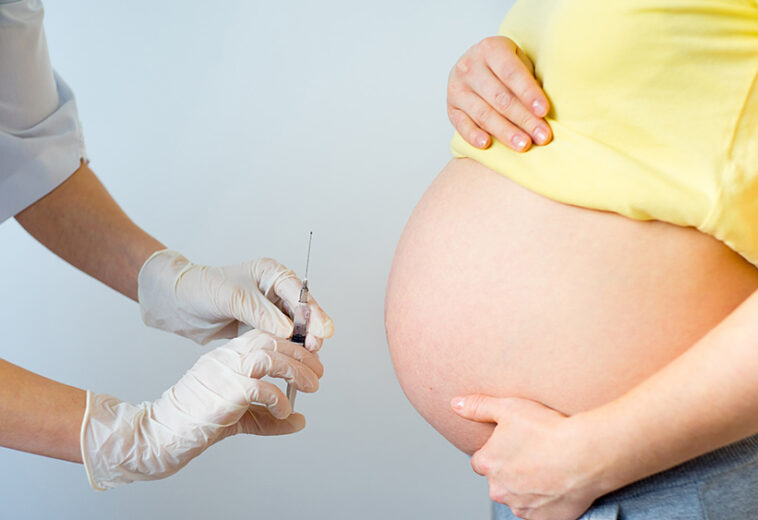A Closer Look at the Impact on Women’s Reproductive Health
A recent study published in Scientific Reports has established a disturbing connection between exposure to pesticides and recurrent pregnancy loss (RPL). RPL, defined as the loss of three or more consecutive pregnancies before 24 weeks of gestation, points to an underlying reproductive health issue. According to the research, the endocrine-disrupting (ED) properties of pesticides can negatively impact several biological processes, including reproduction.
Vulnerability During Pregnancy
Pregnant women often encounter environmental pollutants with serious implications for both maternal and newborn health. Various pollutants such as heavy metals, polychlorinated biphenyl, and pesticides carry ED properties that can transition from the mother to the developing fetus at alarming rates. Pregnant women are being exposed to an increasing number of harmful industrial chemicals, and with an abundance of data illustrating the vulnerability of pregnancy to chemical exposures, public awareness of these threats is mounting.
The study assessed the presence of several pesticide components, including polychlorinated biphenyls (PCBs), dieldrin, dichlorodiphenyldichloroethylene (DDE), ethion, malathion, and chlorpyrifos, in blood plasma samples from patients experiencing RPL. It revealed higher levels of PCBs, DDE, dieldrin, and ethion in RPL cases, signifying a strong link between chemical exposure, placental oxidative stress, and apoptosis. This situation, in turn, leads to decreased human chorionic gonadotropin (HCG) levels, serving as a potential biomarker for RPL risk.
Widespread Pesticide Exposure: A Silent Crisis
Pesticides are nearly ubiquitous in our environment. Previous studies indicate that dietary exposure is the main source of these chemicals in our bodies, though humans are likely to encounter hundreds to thousands of other chemicals. Even though many countries have banned organochlorine compounds, these substances linger in our soils, water, and air, often exceeding safety standards set by the U.S. Environmental Protection Agency (EPA). These chemicals have a profound impact on both environmental and biological health, including triggering endocrine disruption, reproductive/birth problems, and neurotoxicity.
Pregnancy is a particularly susceptible stage for pesticide exposure. Compounds found in a mother’s blood can transfer to the fetus via the umbilical cord. A 2021 study discovered over 100 different chemicals in the blood and umbilical cord samples of pregnant women, some of which were from unidentified sources or previously undetectable in humans. Early exposure during pregnancy can have severe, long-term implications, including increased risk of rare fetal disorders like holoprosencephaly, abnormalities, and increased risk of diseases such as acute lymphoblastic leukemia and Attention-Deficit/Hyperactivity Disorder (ADHD).
Exposure to pesticides not only threatens mothers and their offspring but also future generations. Many current-use pesticides and metabolites of long-banned pesticides continue to impact human health adversely, leading to issues extending into childhood and adulthood and potentially affecting multiple generations.
Past and Present Research Echoing Similar Concerns
Past research supports the findings of this study by asserting that pesticide exposure during pregnancy can adversely impact the mother’s metabolism, contributing to genotoxicity and oxidative stress in fetuses. Moreover, consumption of foods with high pesticide residues is associated with lower chances of live births.
Despite growing evidence of the dangers of pesticide exposure, federal regulators like the U.S. Environmental Protection Agency (EPA) continue to permit harmful exposures. Pregnant mothers and young children should avoid pesticide exposure during critical development periods, and there is a need for stricter regulations and increased research on the long-term impacts of pesticide exposure.
Shifting Away from Pesticide Dependency
With the information collected from numerous studies, it’s clear that a strategic action plan is necessary to transition away from pesticide dependency. The Pesticide Induced Diseases Database (PIDD), for instance, tracks recent studies related to pesticide exposure, emphasizing the need for decisive steps to safeguard public health. Understanding how pesticides impact health and well-being during critical developmental periods is a crucial part of this endeavor.
The study underscores the urgency for immediate action to mitigate the potential catastrophic impacts of pesticides on human health, particularly among pregnant women, and the need to protect future generations. As the science becomes ever clearer, so too does the imperative for change.
Follow, Subscribe, & SHARE:
1. Telegram: https://t.me/TheTruthAboutCancer_Vaccines
2. GAB: https://gab.com/TyCharleneBollinger
3. GETTR: https://gettr.com/user/cancertruth
4. TruthSocial: https://truthsocial.com/@TheTruthAboutCancer
5. CloutHub: https://app.clouthub.com/#/users/u/TheTruthAboutCancer
6. Bitchute: https://www.bitchute.com/channel/vX3lcHH4Dvp0/
7. Rumble: https://rumble.com/c/TheTruthAboutCancerOfficial
8. Brighteon: https://www.brighteon.com/channels/thetruthaboutcancer
Posted: https://thetruthaboutcancer.com/pregnancy-loss-linked-to-pesticide-exposure/


